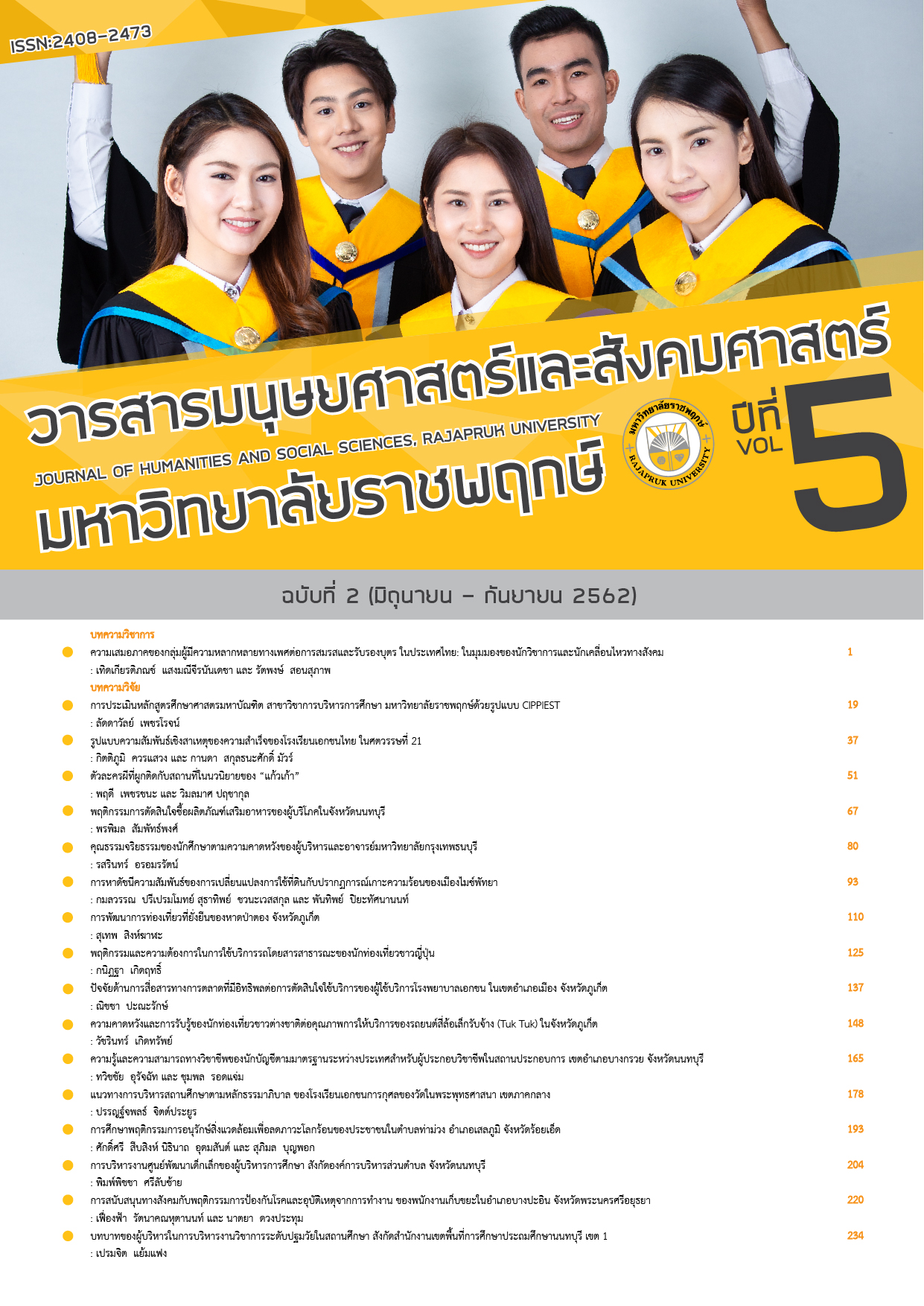A Causal Model for the Success of Thai Private Schools in the 21st Century
Main Article Content
Abstract
The objectives of this research were to; 1) study transformational leadership, learning organizational mechanism, self-efficacy, and school success of Thai private schools in the 21st century 2) study the relationship among transformational leadership, learning organizational mechanism, self-efficacy, and school success and 3) linear relationship and the influence to the school success. The research was designed as a mixed-method divided into 2 phases; the first phase was a qualitative research purposed to find the behavior indicator observed variables of school success using focus group method by 8 experts in education administration, and the second phase was a quantitative research purposed to test the causal relationship among the variables and test of research model by the empirical information. The sampling population was a purposed sampling using 420 private school directors which listed the highest number of students in Thailand. The research tools were a focus group for the qualitative phase and questionnaire for the quantitative phase which approved the content validity by 5 experts in education administration and resulted its reliability at 0.93. The data were analyzed in Pearson’s product moment correlation coefficient, confirmatory factor analysis, and structural equation model.
The research revealed that; 1) the behavior indicators school success of Thai private schools in the 21st century is conformed to Texas Accountability Intervention System (2013) consisted of academic performance, the use of data for planning, leadership effectiveness, family and community engagement, climate of school, and teacher quality 2) transformational leadership, learning organizational mechanism, self-efficacy, and school success are related positively at .01 statistical significantly and 3) learning organizational mechanism, self-efficacy, and transformational leadership influence directly to school success with coefficient of influence 0.544, 0.247, and 0.027 respectively; and transformational leadership and learning organizational mechanism influence school success moderated by self-efficacy with coefficient of influence 0.049 and 0.176 respectively.
Article Details
References
สุชาดา อังศุจินดา. (2553). องค์ประกอบของกลยุทธ์การตลาดที่มีอิทธิพลต่อความสำเร็จของโรงเรียนเอกชน. วิทยานิพนธ์ปรัชญาดุษฎีบัณฑิต สาขาวิชาการจัดการ มหาวิทยาลัย
คริสเตียน.
Angsujinda, S. (2010). The Components of Marketing Strategy Influencing Success of Private Schools. Doctoral Dissertation in Management, Christian University of Thailand. (in Thai)
Bandura, A. (1978). Self-Efficacy: The Exercise of Control. New York: W. H. Freeman.
Bass, B. M. & Avolio, B. J. (2004). Multifactor Leadership Questionnaire. Manual and Sampler Set. 3rd ed. Redwood City, California: Mindgarden.
Covey, S. R. (2004). The 7 Habits of Highly Effective People. New York: Free Press.
Hair, J. F., Black, W. C., Babin, B. J., and Anderson. R. E. (2010). Multivariate Data Analysis. 7th ed. New Jersey: Prentice Hall, Upper Saddle River.
Popper, M. & Lipshitz, R. (2000). Organizational Learning Mechanisms, Culture and Feasibility. Thousand Oaks, California: Sage Publications.
Sanrattana, W. (2013). New Paradigm in Education: Attitude to the 21st Century Education. Bangkok: Tippayawisoot. (in Thai)
Texas Accountability Intervention System. (2013). Districts and Campuses Rated Improvement Required Districts Staged for Performance Based Monitoring. Texas: Texas Education Agency.


